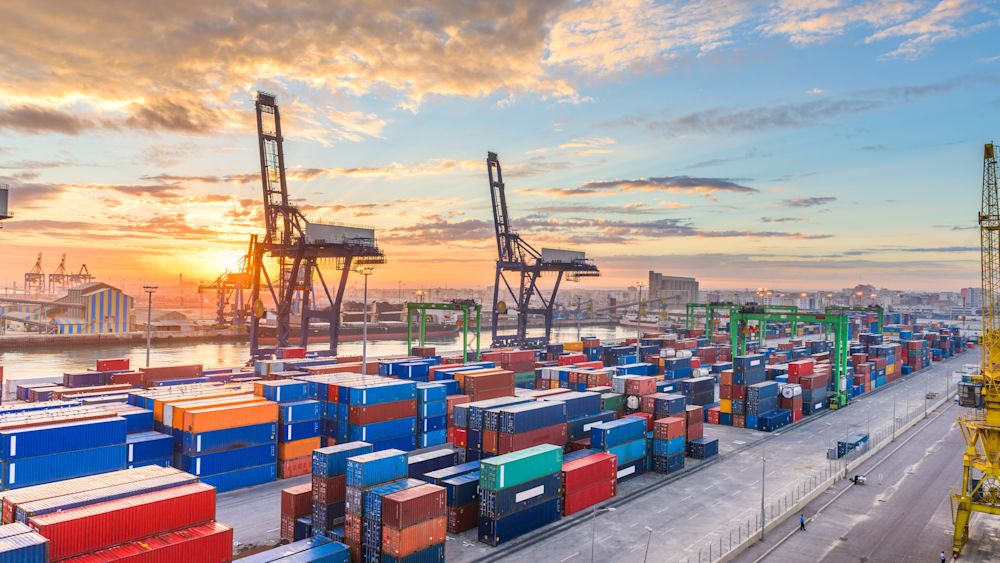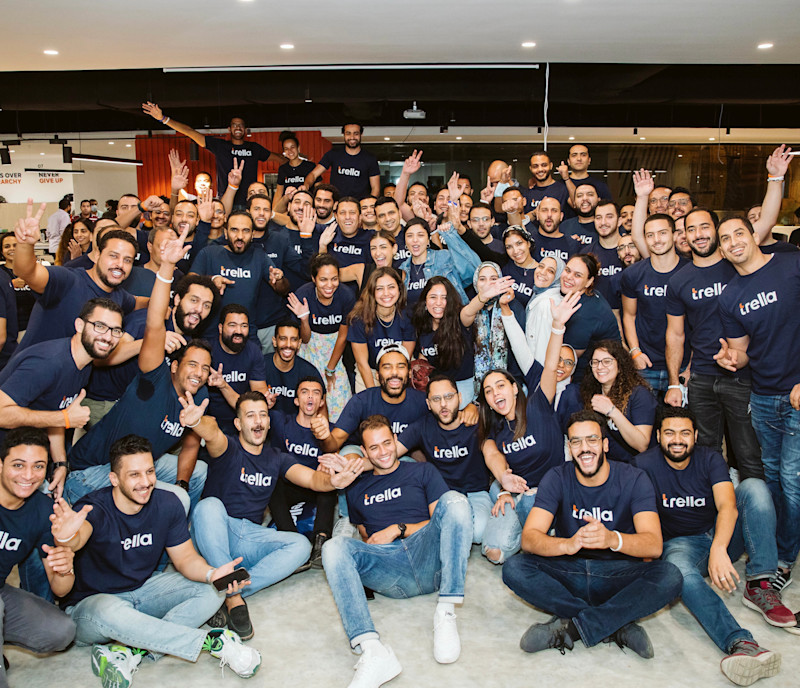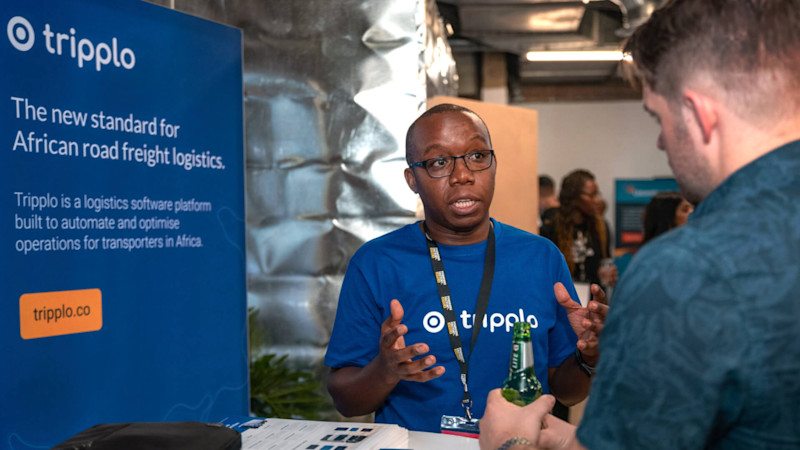- Iterate
- Meet The Team
- What We’ve Learned From Two African Startups Blazing a Trail in E-Logistics
What We’ve Learned From Two African Startups Blazing a Trail in E-Logistics
Table of contents
The Africa Free Trade Area (AFTA) was launched in January 2021 and is set to create a single market on the continent, similar to the European Union. While there are many obstacles that need to be overcome for the AFTA to reach its full potential, logistics startups are positioning themselves to play a key role in it.

The Africa Free Trade Area (AFTA) was launched in January 2021 and is set to create a single market on the continent, similar to the European Union. It will cover a market of over 1.3 billion people across 55 countries with a combined GDP of $2.6 trillion , making it the largest free trade area globally. While there are many obstacles that need to be overcome for the AFTA to reach its full potential, logistics startups are positioning themselves to play a key role in it.
The challenges of moving goods in Africa
The broken and fragmented African logistics value chain has been widely reported, even prior to the COVID-19 pandemic. One of the key reasons for this is the underdeveloped infrastructure, which creates huge constraints in terms of time and cost efficiency in the logistics sector.
If you own a small trucking company responsible for moving goods across borders, you would bear the brunt of this, facing hurdles around lack of transparency in pricing and long and cumbersome border clearances.
These inefficiencies ultimately affect the end consumer, where 40-60% of the cost of a good in an African store can be attributed to logistics-related costs; for example, a $10 bottle of wine produced in South Africa will cost you $22 at a supermarket in a neighbouring country like Namibia or Zambia. Creating mechanisms that can bring down these costs through having greater transparency and efficiency along the value chain is becoming increasingly important. To solve some of these challenges several e-logistics startup companies have emerged on the continent.
The Org spoke to the co-founders of two logistics marketplaces, Trella and Tripplo, to understand how technology is transforming the sector in Africa.
How Trella is creating efficiencies in logistics in the MENA region and beyond
A leading e-logistics startup in the MENA region and Pakistan, Trella was founded in Cairo by CEO Omar Hagrass ,CTO Pierre Saad and COO Ali El Atrash. Hagrass, a former Uber employee with experience in investment banking, spoke of how he noticed challenges across the logistics value chain, with a specific focus on the trucking transportation market.
“From day one, Trella’s aim was to change the status quo and disrupt the market, by digitizing this segment of the logistics supply chain and cutting the friction in the system by eliminating middlemen and improving the experiences of the customers at both ends of the spectrum,” Hagrass told The Org. Trella is a B2B technology platform and trucking marketplace that connects shippers with carriers in the highly fragmented, freight industry that has very opaque pricing structures across the value chain.
Hagrass shared how Egypt has become a popular market for B2B startups focusing on the logistics industry. The logistics industry, specifically in road transportation, represents a $50 billion market opportunity across the Middle East, North Africa, Afghanistan and Pakistan region, Hagrass said.Trella closed a $42 million funding round in June last year that was led by Maersk Growth, the venture capital arm of A.P. Moller Capital and Raed Ventures. The funding will allow Trello to invest in its technology and product development to serve more blue chip clients such as Coca Cola, Maersk, Orascom and Cemex and grow its network of carrier partners.
“We approached our earlier stages, and Series A process with the philosophy of only selecting investors that share our vision and who were ready to help us get there one milestone at a time. Our investors did not just evaluate us as a digital broker or trucking marketplace, but as a fully-fledged logistics and financial services provider in-the-making. Our pitch was very simple: we believe we have the best team and the best product in our industry to make this a reality,” Hagrass said.

How Tripplo is creating a new standard for road freight across Southern Africa
South African e-logistics startup Tripplo was established in 2019 by Victor Chaitezvi, after working as an investment analyst at Value Capital Partners and Microsoft, prior to that. Tripplo was borne out of an incubator program as an idea on a one pager, with the mission of improving road freight logistics in Africa, leveraging technology.
Upon leaving corporate, Chaitezvi established a small trucking company and he experienced a high number of inefficiencies, including having to develop 40 different Excel sheets to manage that trucking company. Tripplo was founded by turning those Excel sheets into software tools for other small trucking companies, to provide convenience at a cost-effective range.
Chaitezvi realized from running his trucking company how highly fragmented the market was. Many small trucking companies contribute significantly to the logistics market in Africa, but face existential challenges around internal operations, such as managing staff, fleet and cash flow. Cargo owners tend to have long payment terms that can range from 30 to 180 days, resulting in smaller players losing out to bigger competitors due to the lack of working capital to service those payment days. Chaitezvi added that smaller freight carriers players were deemed to be risky by manufacturers who would rather pay a premium than use smaller logistics companies.
Tripplo provides a digital solution that optimizes and automates operations for the small transporters and their software enables automatic tracking and route planning.
Most of the funding to fuel the company’s growth has come from local investors in South Africa, including Digital Africa Ventures and Founders Factory. Chaitezvi noted that local investors tend to be more risk-averse than international ones, citing that most local investors come from investment banking and expect startups to show market traction to be fundable. He is optimistic that things will change: as more unicorns emerge from the region, he says, more local capital will flow in.
Tripplo has been looking at how it can infuse logistics and fintech, to help smaller transporters with working capital and early settlement facilities in order to carry the 30-180 day payment periods that bigger cargo owners prescribe to. Their goal is to reinvent road freight and become the largest logistics platform in the world, across both demand and supply where everything is fully automated. Tripplo ranked first for Fast Company South Africa’s most innovative company list in 2021.
“Our hope is that the success of these companies will translate into products from Africa being more globally competitive and to reduce the over-reliance on imports,” Dave Kitley, Chief of Staff at Trella, told The Org. He added that Africa is still heavily dependent on imports and that logistics has a role to play in ensuring that these goods and services reach warehouses and retailers timeously.
Chaitezvi also highlighted how digitizing logistics can unlock new job opportunities, saying people tend to think of just truck drivers when we talk logistics but there is a whole chain that entails digitizing electronic paperwork, financing and automated tracking. “We have seen that we can create 9 jobs to 1 that the traditional cargo brokering business can, all because of technology,” Chaitezvi said.

Create your own free org chart today!
Show off your great team with a public org chart. Build a culture of recognition, get more exposure, attract new customers, and highlight existing talent to attract more great talent. Click here to get started for free today.

